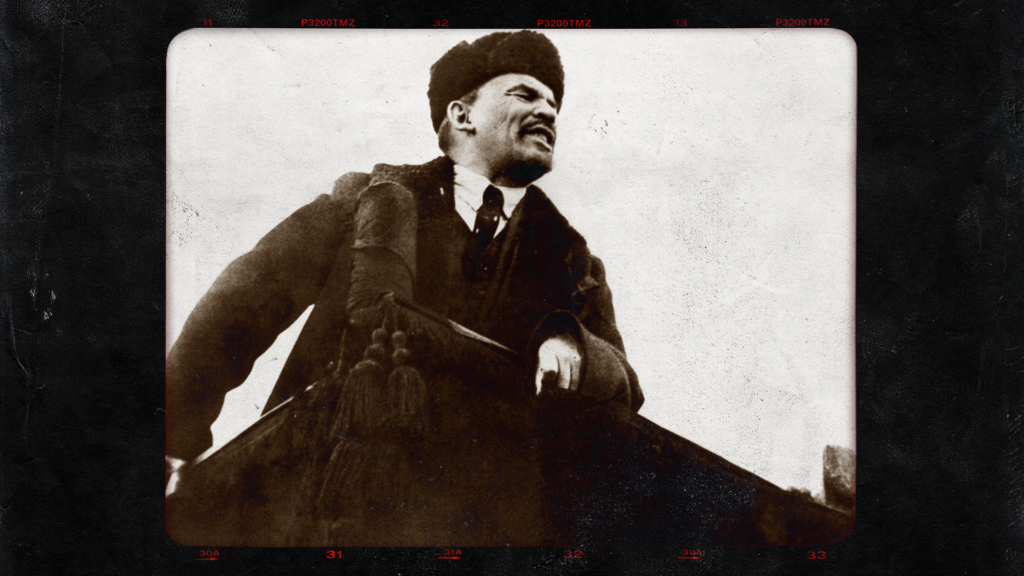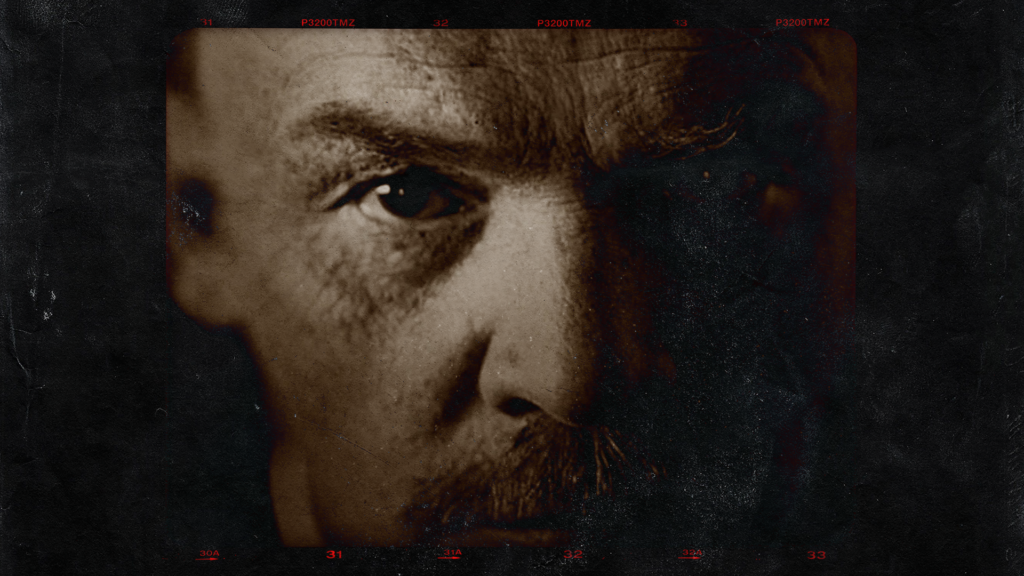The following is an edited transcript of a Daily Wire interview with Bill Whittle on his new, in-depth docuseries on the rise of the Soviet Union: “What We Saw: An Empire of Terror.”
Daily Wire: Bill, you’ve now produced multiple “What We Saw” documentaries for The Daily Wire: “Apollo 11” and “The Cold War.” Why did you choose the rise of the Soviet Union as your next project?
Bill: Shortly after the invasion of Ukraine I received a call from Jeremy Boreing at The Daily Wire. I just finished covering a fair amount of Russia with “The Cold War” series. Given the research for “The Cold War,” and my previous readings, I’ve always been kind of morbidly fascinated with the mechanisms of the Soviet Union — fascinated and disgusted and appalled and intrigued by governments that have to terrorize their people in order to remain in power, antithetical to the American system. And no matter how bad we think things get here, there’s nothing that’s happened or is happening now in this country that even approaches this scale.
DW: Why is it important to remember Russia’s Bolshevik Revolution?
Bill: Several years after World War I, Winston Churchill said that the Germans had transmitted a “Bacillus” into Russia in the form of Lenin. I think he got that exactly right. It (Lenin) was a biological weapon. And it was designed to destroy Russia as a great power in World War I. That’s why the Germans not only allowed Lenin to travel through Germany during the height of the war, but in fact paid his expenses for many, many years afterwards.
This regime is interesting to me for two reasons: the main reason is how intellectual it was — and I have a very low opinion of intellectuals. Intellectualism is for people who think they are intelligent and are so certain of themselves and so certain of what they believe that they feel the right to enforce their theories on other people.
What fascinated me about this horrific system was the theoretical aspect of everything. There was nothing about the system that was practical. There was nothing based on common sense, experience, reason, kindness, decency — nothing. It was all based on the theory of a German philosopher named Karl Marx. His writings appealed to people looking for some sort of justice, but they also appealed to people who had any sort of envy for the people in power but didn’t want to do any work in order to achieve it.
WATCH: “An Empire of Terror” on DailyWire+
The other remarkable quality about all of the Soviet leaders is just how useless they were. Prior to finding themselves in the middle of the system, none of them had jobs. Lenin’s only job was as a failed attorney, very briefly. As a lawyer he lost, I think, 13 out of 14 cases and never really worked a day in his life. Prior to the revolution, he sat around for 16 years, sitting in cafes in safe places like Berlin and Munich and London and Zurich, sipping tea and discussing theory.
He developed in his massive forehead this idea of how a society should work and there was no real world evidence that would change his mind. If it turned out that there was a difference between the map he had in his head and reality, then the reality had to be well, he would then go about doing whatever he had to do with the lovers of state power to beat reality into line with the theory. And this is why the Soviet state was a terror state. They never had legitimacy.
The Bolsheviks were a minority every single time they held a so-called “election;” they were a tremendous minority. And you can’t even accuse the Nazis of that.

DailyWire+
DW: In “An Empire of Terror” you mention the leader of Russia’s provisional government, Alexander Kerensky. Why wasn’t he able to mount a good defense against the growing Bolshevik threat?
Bill: Someone once wrote that Lenin was “lucky with his enemies.” And that was exactly the case. I have very high regard for Alexander Kerensky’s principles and for what he wanted for the Russian people. But as an actor, Kerensky had two qualities that actors often bring to the world: First, he was spectacularly naive when it came to the real world. And second, he was tremendously vain. These two blind spots led him to believe he was in control when in fact, Lenin was ready to do everything up to and including murder when Kerensky was simply looking out the window at the daisies. He was a good man and history was kind to him but he was no match for Lenin’s ruthlessness. This is the thing about the Soviet state — it’s designed in such a way that you have to keep the population under control through terror. The people that end up running the machine, by definition, become the most ruthless and terroristic of the bunch.

DailyWire+
DW: What were some of the challenges you faced making this new series?
Bill: All roads lead back to Lenin. When I began to realize the magnitude of the crimes that these people committed, I began to feel a tremendous sense of historical responsibility to the people who disappeared without photographs.
800,000 people were killed in one of the gulags called Kolyma. 800,000 people. That makes it second on the leaderboard from hell: Auschwitz is first, Kolyma is second, and Treblinka is third. So, more than anything, I wanted every single episode to have as many photographs of the faces of individual people. And most importantly, we can never use the same face twice. I just wanted faces because, as Stalin said, “One death is a tragedy, a million deaths a statistic.”
So my biggest challenge was to find a way to try and personalize this. Make people understand that this could just as easily be you or your family, and then try to give them some idea of what the size of 20 million people looks like.
For example, about 100,000 people attend the Super Bowl every year. Imagine that everybody had to exit the stadium, single file, through one gate and you had to stand there and look at every single face as they left the stadium. When you were finished, hours and hours and hours later, you would have only 199 more Super Bowls to look at before you reached 20 million and saw the face of every person killed by this “idea.” And if it’s killed that many people, maybe it’s not such a good idea.
DW: Did you come across any surprises in your research?
Bill: The most astonishing story in “An Empire of Terror” is a true story. I’ve worked exceedingly hard and long to make sure that not only everything I wrote was true, but that I also had the receipts for everything.
But the most astonishing coincidence in the entire series is this: Lenin and Stalin were both known to be extremely paranoid, and very, very private people. They kept a very tight circle and they were constantly on the lookout for assassination and betrayal. So when Lenin finally arrives in Moscow from St. Petersburg, and eventually gets himself a little mansion, he is living with his sisters, his wife, and two secretaries. He also has four bodyguards and a private cook named Comrade Spiridon.
Comrade Spiridon went from being the only person that lived with Lenin, who was not related to him, to becoming the only person who lived with Stalin. And he lived with Stalin for the duration of Stalin’s reign in the Soviet Union. The only person who shared the insight into the entire thing — from the rise from agrarian peasantry to nuclear superpower. Comrade Spiridon was the only man who was on the inside. He would serve dinner to people who were the heads of the secret police one night and then the next night they were gone. They’d been killed and replaced. The genuinely remarkable part of this story is that Comrade Spiridon’s last name was Putin. This was Vladimir Putin’s grandfather.
Vladimir Putin learned about the Soviet Union on his grandfather’s knee. And so the perspective Vladimir Putin received of the Soviet Union was the most elevated inside perspective that was possible to obtain. No one else in the entire history of the Soviet Union, ever, got that close to both of those men. And to think that it was possible for Vladimir Putin to turn out any other way is insane.
DW: In light of the upcoming presidential election, do you see elements of communism at play in our politics?
Bill: Well, the first thing I think that stands out about the upcoming election is the lawfare that’s being conducted against Donald Trump. If these people who are committing these atrocities against him genuinely believed in democracy, if they genuinely believed that their democratic values were better than Republican values, they wouldn’t be trying to lock up Trump. They’d be doing everything they could to get him to keep talking. If you feel like your only way to win an election is by having your opponent put in jail, you are well on your way to this kind of totalitarian empire of terror. That’s number one.
Number two is cancel culture. The Left is using cancel culture as a strong-arm tactic to get people to shut up. And we all know the way it works: “You’re racist” or “we’re going to call your boss” or “we’re going to boycott your product” or whatever. But the point is that the only people who feel they need to shut up the opposition are people who know that their opposition has a better argument. And if they don’t shut them up, they’re going to win. One of my favorite sayings is that liberals want conservatives to shut up and conservatives want liberals to keep talking. And that’s the essence of the difference between these two parties.
I have seen a concerted effort in America over the last several years to silence people. This whole idea of cancel culture is as close as we’ve come so far to taking people out to the Gulag and shooting them in the back of the head. But there are people who do want other people silenced. And the one thing I did realize is that there comes a tipping point when too many people are too quiet for too long. The social proof is to be quiet. The longer everybody is quiet, the harder it is to speak up. Eventually, it will lead to a situation like the Soviet Union, or the Nazi state. With “An Empire of Terror,” I was determined to do my best to make sure that doesn’t happen.














